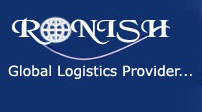
As a logistics professional, I have experienced firsthand the challenges that arise from congestion at port. The efficient movement of goods through ports is crucial for businesses, and any disruptions can have a significant impact on operations.
In this article, I will explore the causes of port congestion, discuss its impact on operations, and provide strategies to mitigate these challenges.
Causes of Congestion at Port
Port congestion can be caused by a variety of factors. One common cause is an increase in container traffic, which can overwhelm the capacity of ports. This can occur due to a surge in global trade, the introduction of larger vessels, or inadequate infrastructure.
Another cause of congestion is inefficient container management systems. When containers are not properly tracked and managed, it can lead to delays and bottlenecks at ports. Additionally, labor strikes, customs delays, and regulatory issues can contribute to congestion.
Impact of Congestion at Port on Operations
The impact of port congestion on operations can be significant. Delays in the movement of goods can result in increased costs, missed deadlines, and dissatisfied customers.
For businesses that rely on just-in-time delivery, congestion can disrupt their entire supply chain. Furthermore, congestion can lead to a domino effect, causing delays at subsequent ports and creating a ripple effect throughout the industry. It is crucial for businesses to understand the potential impact of port congestion and develop strategies to mitigate its effects.
Strategies to Mitigate Congestion at Port
To ensure smooth operations despite port congestion, businesses can implement several strategies:
Improving Communication and Collaboration Among Stakeholders
Effective communication and collaboration among all stakeholders involved in the port operations can help mitigate congestion. This includes port authorities, shipping lines, terminal operators, trucking companies, and customs officials.
By sharing information in real-time and coordinating efforts, stakeholders can better anticipate and manage congestion. Regular meetings and the establishment of communication channels can facilitate effective collaboration and problem-solving.
Implementing Efficient Container Management Systems
Efficient container management systems are crucial for mitigating port congestion. By implementing advanced tracking technologies and automated systems, businesses can improve the visibility and control of containers.
Real-time tracking allows for better planning and coordination, ensuring that containers are moved efficiently and minimizing the risk of bottlenecks. Additionally, implementing container priority systems can help prioritize the movement of time-sensitive goods.
Utilizing Technology for Better Tracking and Planning
Technology plays a vital role in mitigating port congestion. The use of data analytics, artificial intelligence, and machine learning can help businesses analyze historical data, predict congestion patterns, and optimize planning.
Advanced planning tools can aid in determining the most efficient routes, vessel schedules, and container allocation. Furthermore, the use of mobile apps and electronic documentation can streamline processes and reduce paperwork, enhancing overall efficiency.
Enhancing Infrastructure and Capacity at Ports
Investing in infrastructure and expanding the capacity of ports is essential for mitigating congestion. This includes the construction of additional berths, the installation of advanced cargo handling equipment, and the improvement of road and rail connections.
By increasing the capacity of ports, businesses can accommodate growing container traffic and minimize delays. Collaboration between public and private entities is crucial to ensure the timely completion of infrastructure projects.
Collaborating with Shipping Lines and Other Stakeholders
Collaboration between shipping lines, terminal operators, and other stakeholders is vital for managing congestion at port. By establishing partnerships and sharing resources, businesses can pool their expertise and resources to address congestion challenges.
This can involve the sharing of vessel space, the optimization of vessel schedules, and the coordination of container movements. By working together, stakeholders can collectively find solutions to mitigate congestion at port and improve overall efficiency.
Conclusion and the Importance of Proactive Planning
Port congestion poses significant challenges for businesses involved in international trade. However, by implementing strategies such as improving communication and collaboration, implementing efficient container management systems, utilizing technology for better tracking and planning, enhancing infrastructure and capacity at ports, and collaborating with shipping lines and other stakeholders, businesses can navigate through these challenges and ensure smooth operations.
Proactive planning and a proactive approach are crucial in mitigating the impact of congestion and maintaining the efficiency of supply chains. By staying ahead of potential congestion issues, businesses can minimize disruptions, reduce costs, and deliver goods to customers in a timely manner.
As a logistics professional, I have witnessed the positive impact of implementing these strategies in mitigating congestion. By proactively addressing the causes of congestion and adopting innovative solutions, businesses can navigate through these challenges and ensure smooth operations.
By implementing these strategies, businesses can minimize the impact of port congestion, reduce costs, and deliver goods to customers on time. It is imperative for businesses to recognize the importance of proactive planning and take action to mitigate the challenges posed by port congestion. Together, we can overcome these challenges and ensure the efficient movement of goods through our ports.
I call on maritime operators, ship operators, vessel managers, fleet owners, and other stakeholders. Don’t let port congestion sink your business. Choose Ronish Nigeria Limited ship agency services to navigate through congestion efficiently and keep your operations afloat. Contact us today to streamline your port calls and sail smoothly towards success!
